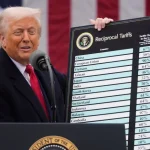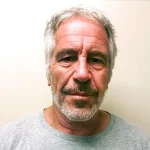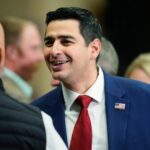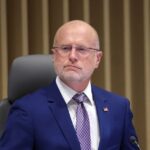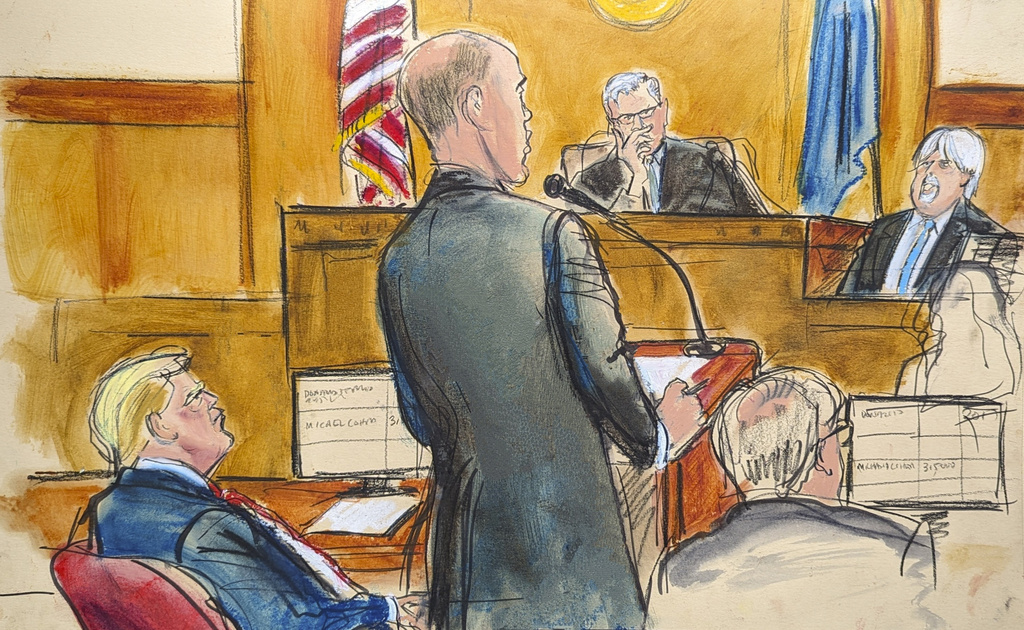
A former Trump Organization executive testified on Monday in New York about a series of payments he approved to Michael Cohen in 2017, saying the Trump Organization’s former CFO was responsible for setting up the payment arrangement.
Jeffrey McConney, the Trump Organization’s former controller, said on the witness stand that then-CFO Allen Weisselberg approached him in January 2017 about a plan to reimburse Cohen after Cohen paid porn star Stormy Daniels’s lawyer $130,000 to silence her days ahead of the 2016 election.
“Allen Weisselberg said we had to get some money to Michael. We had to reimburse Michael. He tossed a pad toward me, and I started taking notes on what he said,” McConney said of a Jan. 27, 2017, meeting, according to CNN’s reports from the courtroom.
Prosecutors submitted evidence of an account statement of Cohen’s payment to Daniels, which he made by taking out a loan under false pretenses. The statement contained handwritten notes by Weisselberg explaining how Trump would reimburse Cohen the $130,000 amount, plus pay him a bonus and technology services. The amount would also be “grossed up” to account for taxes.
The trial day centered on accounting topics and lacked the drama of past days in court that featured higher-profile witnesses, but it was crucial for prosecutors in terms of documentation. The monotonous paper trail they presented allowed them to introduce to jurors the payments that are at the heart of Manhattan District Attorney Alvin Bragg’s claims.
Bragg, an elected Democrat, has alleged that Trump falsified business records to hide Cohen’s payment to Daniels as part of a conspiracy to influence the 2016 election. Bragg has tied the alleged bookkeeping falsifications, which would normally be misdemeanors, to an alleged election interference conspiracy to elevate the charges against Trump to felonies. He has argued that the money was used to silence Daniels, who would have otherwise publicly alleged right before the election that she once had a sexual encounter with Trump.
Defense attorneys have noted that suppressing unflattering stories, even during an election, is not illegal.
Prosecutors laid out on Monday how Trump paid Cohen a reimbursement through 12 $35,000 payments, though they struggled to demonstrate that Trump had detailed knowledge about the structure of the payment plan, which Weisselberg crafted.
The first two payments were combined into one check and originated from Trump’s revocable trust. McConney said that at the instruction of Weisselberg, McConney ordered an accountant to label the payment as a “retainer” for Cohen. Prosecutors have said no documentation of such a retainer exists.

The subsequent 10 payments were made monthly to Cohen in the form of checks that came from Trump’s personal bank account and were signed by Trump.
McConney directed an accountant to categorize the payments as “legal expenses” on a ledger “because we were paying a lawyer,” he testified.
Another witness, the Trump Organization’s longtime accounts payable supervisor Deborah Tarasoff, testified that Trump was in tune with his company’s finances, a claim that could help prosecutors attempt to incriminate Trump for the payments.
“He had his hands in everything,” Tarasoff said, noting that Trump also talked regularly with Weisselberg.
Defense attorneys questioned Tarasoff about Trump’s schedule and were able to highlight that the former president was so busy at the start of his presidency that minutia surrounding the payment arrangement to Cohen might not have been on Trump’s radar.
CLICK HERE TO READ MORE FROM THE WASHINGTON EXAMINER
Weisselberg, for his part, is currently serving out a five-month prison sentence at Rikers Island for committing perjury while testifying during Trump’s civil fraud trial. Weisselberg previously pleaded guilty to tax fraud and falsifying business records as part of a plea deal with Bragg last year.
Prosecutors indicated Monday that they needed roughly two more weeks to make their case before the trial turns to Trump’s attorneys to present their defense.
